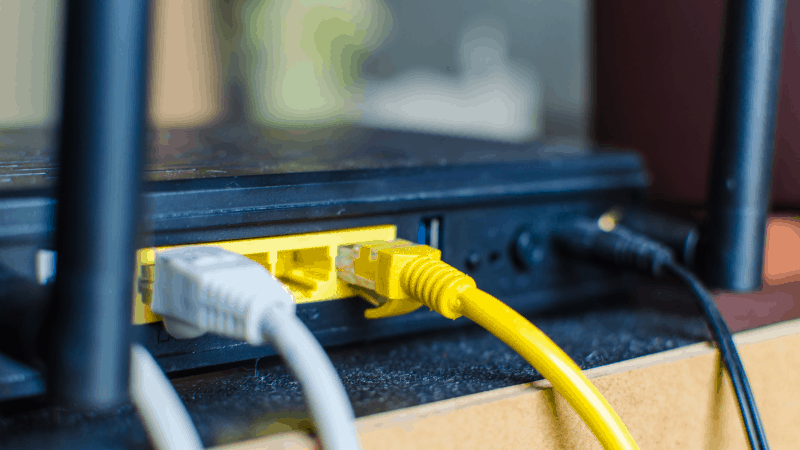Can a Smart TV Use a Modem?
When you buy through our links, we may earn an affiliate commission.
Wireless technology has come a long way over the years. Whether it’s cellular, Wi-Fi, Bluetooth, or what lies around the next corner, wireless is improving lives and changing the dynamics through which we socialize, work, and gather information. However, if you’re looking for the fastest connection in your home for your TV, a direct connection to your modem or router still takes the cake.
Not only can your smart TV use a modem, but it’s also the most reliable, secure, and fastest method. If your modem or router is set up near your smart TV, connecting the two via ethernet port is your most practical option.
Smart TVs are almost purely designed to stream content. With 4k becoming the norm and 8k making its way into homes, the demand for bandwidth is soaring. Your smart TV is better off connected to your modem to leverage the absolute best out of your internet service. Read on to learn more about why you can—and should—connect a smart TV and modem.
Using a Modem to Connect Your Smart TV to Internet
If all you ever want to do is connect a single smart TV to the internet, then all you need is a modem. Most ISPs—Internet Service Providers—rent out what’s called a Gateway, or a router and modem combined.
Gateways, like a router alone, will usually come with multiple Ethernet ports on the back. A modem can only connect one device to the internet at a time, while a router will connect multiple devices.
If you’re cutting cable and don’t want to rent a Gateway from your ISP, there are several modem/router combos to buy on your own. For example:
If you already own a modem, stand-alone routers are another option to extend your network and connect to your smart TV with an Ethernet cable:
There’s a lot of options available to get you out from underneath the thumb of your ISP, and you can connect your smart TV to any of them for fast and reliable internet.
Benefits of Using a Modem with Smart TVs
The following are the many benefits that come with directly connecting your TV to a modem:
Improve Streaming Reliability
Every device connected to your Wi-Fi is a potential disruption. Even the number of devices you can connect to a given network is limited. Bluetooth interferes with Wi-Fi and vice versa.
Brick, steel, concrete, microwaves, neighboring networks, and thick walls are all problems with a home network. If you own a smart TV, especially a 4k, the most effective way to eliminate interference is to plug your smart TV into your modem.
Data flow won’t be subject to the variety of devices connected to your Wi-Fi, Bluetooth, microwaves, or physical impediments.
Increase Streaming Speed
In a perfect world, an Ethernet connection can handle data loads up to 10Gbps. Reality is different, but your smart TV is still better off connected to your modem.
Cat 5e is the standard currently but, if you’re willing to dish out a little extra money, a Cat 6 Ethernet cable reduces crosstalk even more than the 5e and increases speed while reducing latency. You can even get a Cat 6 Ethernet to HDMI adapter to interconnect your laptops, gaming consoles, and other devices together or with your smart TV.
If you have DSL or low-end internet service, then sticking with Cat 5e is perfectly fine.
Have a More Secure Internet Connection
The standard consensus is that a wired connection is a lower security risk than wireless. In a home versus business setting, the point is arguable. In your home—unless you have guests who frequently plug into your Ethernet ports—wired connections are more secure.
There has to be a physical intrusion to access your wired connection, as in someone on your property plugging into your Ethernet port.
That doesn’t mean wireless is ineffective. With antivirus software, encryption, dual-authentication, and web filtering, wireless internet is very secure, so long as procedures are put in place.
So long as you set your home network up with security in mind, it shouldn’t be an issue either way. However, wireless—strong security protocols or no—doesn’t eliminate all of the other variables that make connecting your smart TV to a modem preferable.
Final Thoughts
While there are always drawbacks with any new and exciting technology, wireless internet and connectivity are improving.
Depending on the number of devices connected to a wireless network, it may not be enough of a difference when connecting to your modem/router. This is especially true if you have a fast network.
But, for the best security, reliability, and speed, connecting your smart TV to your modem or router via Ethernet is still the best way to deliver streaming content while largely avoiding interruption or latency.

